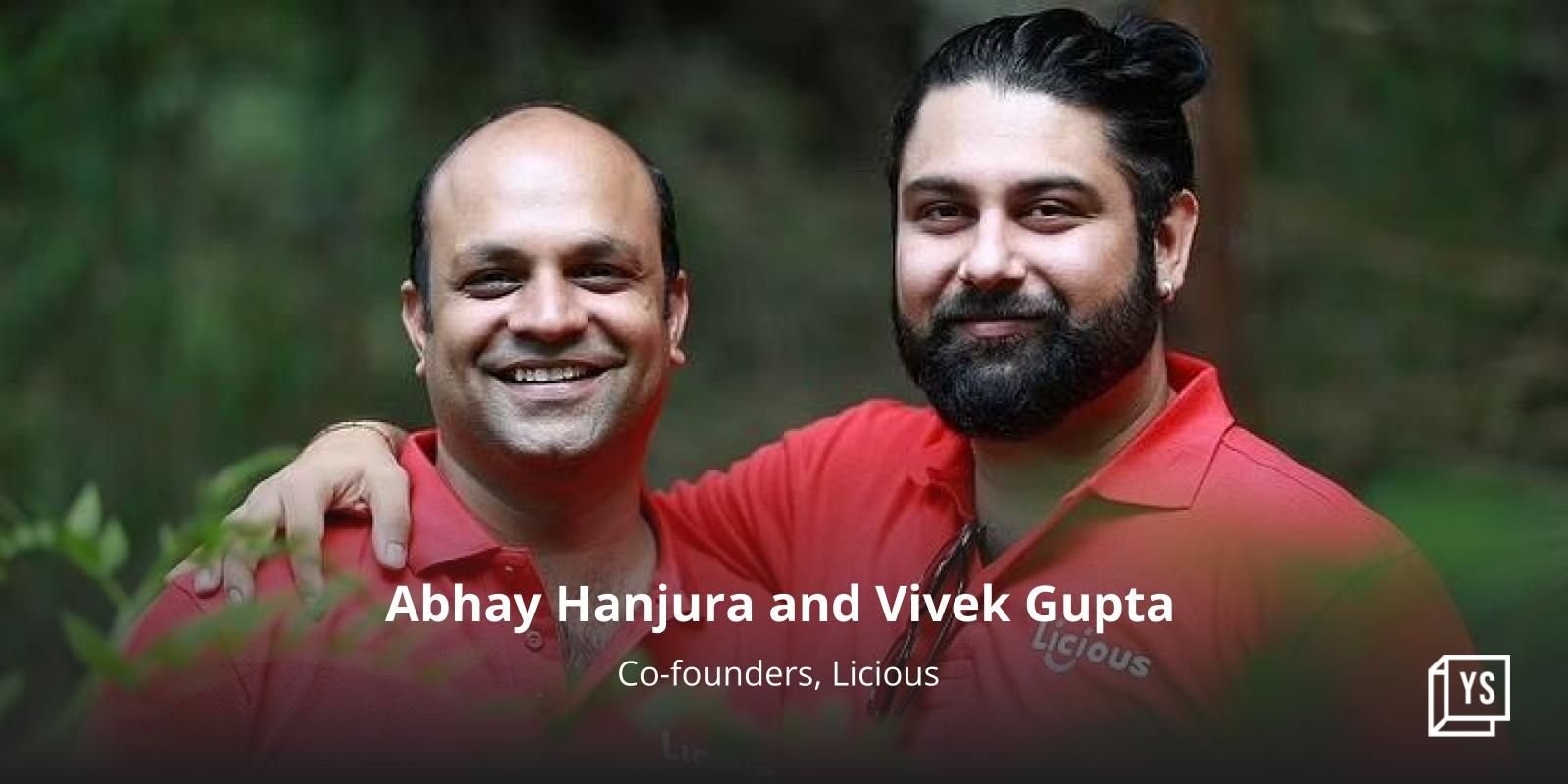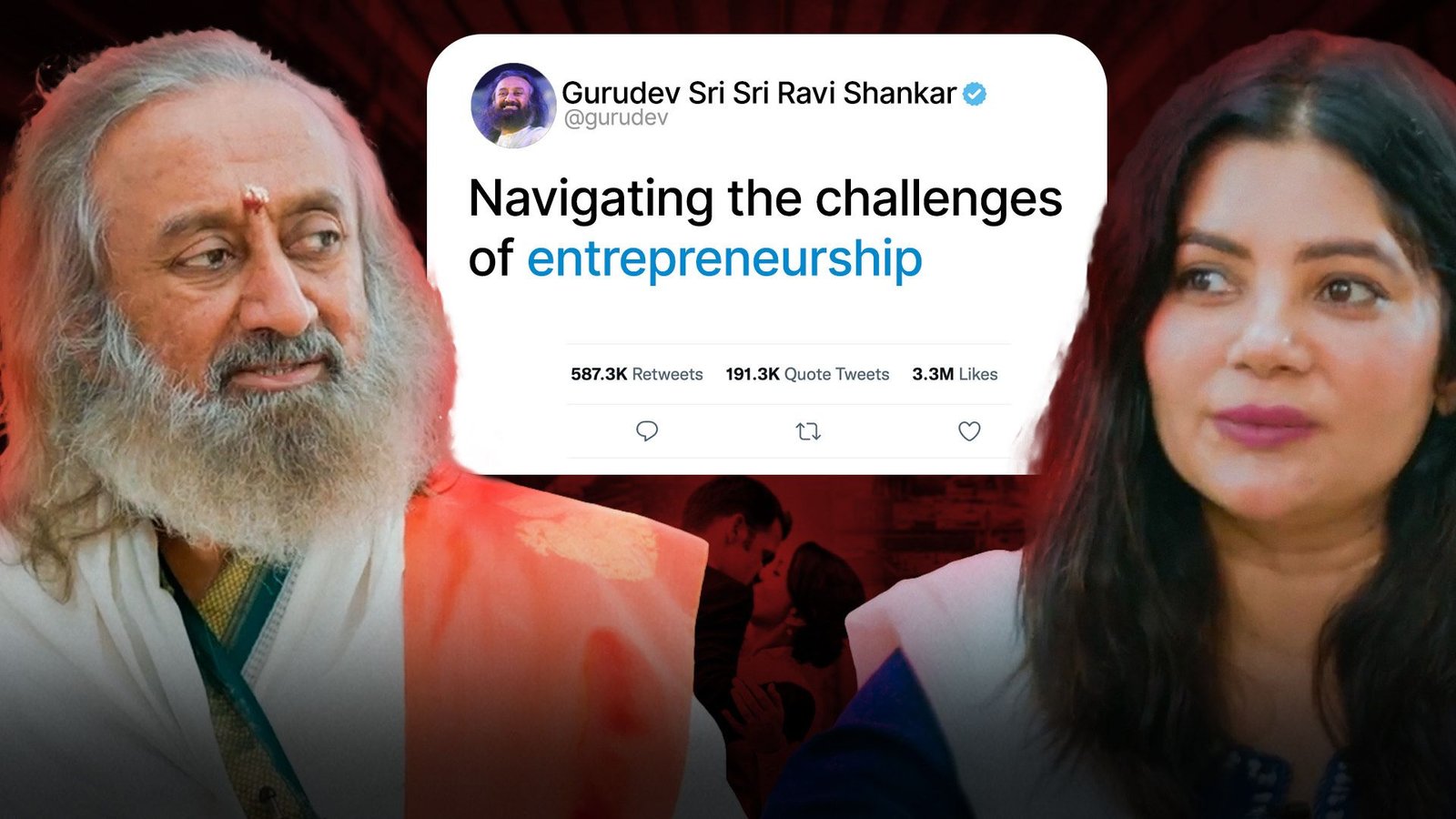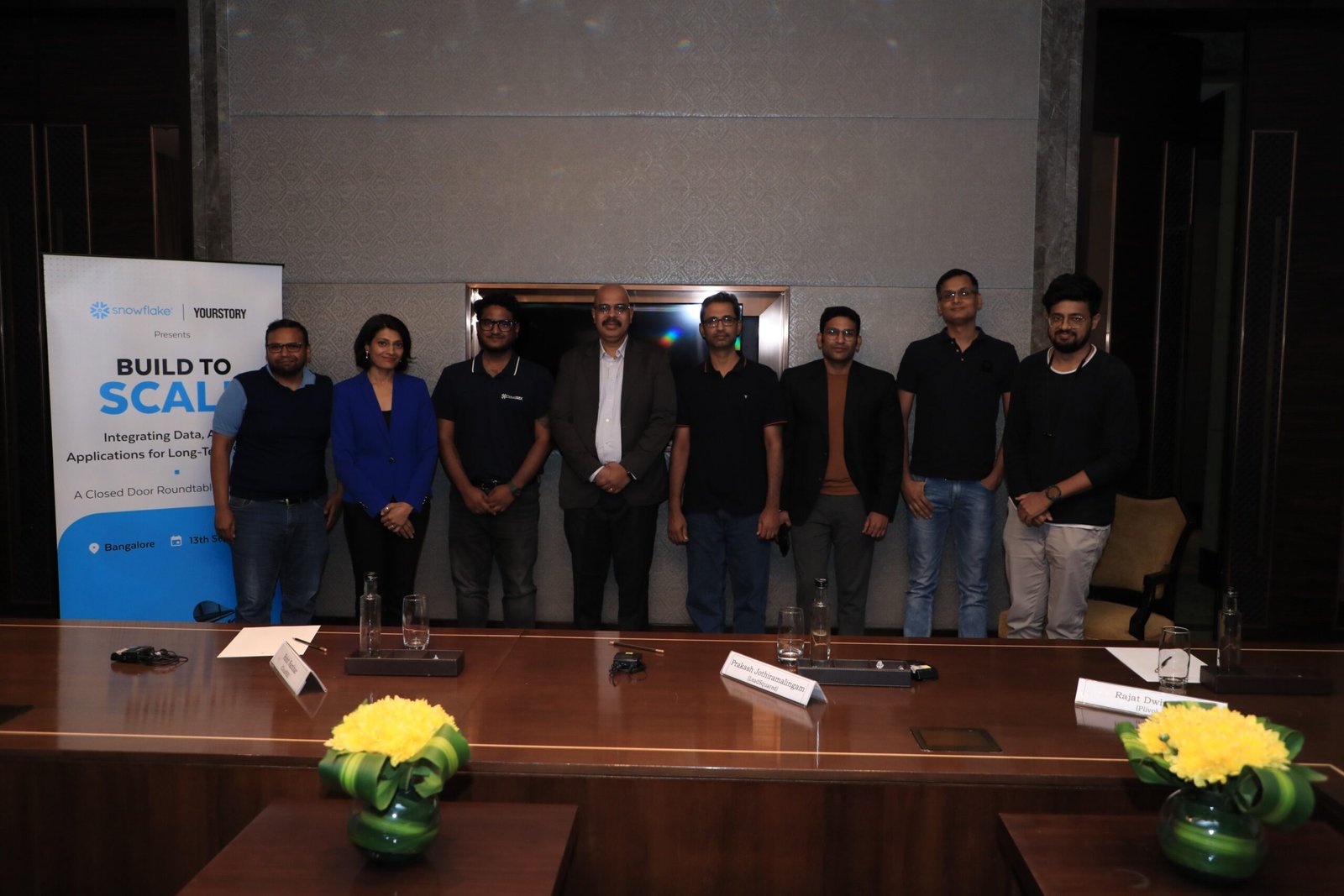Startup
Licious pares FY24 losses by 44%; revenue slides 8% to Rs 685 Cr

Omnichannel meat and seafood retailer Licious on Wednesday announced it narrowed its FY24 losses by 44% to Rs 293.77 crore as it streamlined its operations and distribution channels.
The Bengaluru-headquartered company reported a revenue of Rs 685.05 crore in FY24, compared to Rs 746.38 crore in FY23.
Its revenue decline of 8% was attributable mainly due to closure of distribution channels, Dunzo and Swiggy Meatstore specifically. Its efforts in deprioritising exposure to modern trade and local stores also dragged revenue down.
However, these headwinds to topline were offset by the growth of quick commerce deliveries, which increased 35% YoY. Licious also reported a 5% rise in platform-driven sales for the year.
Delightful Gourmet, which owns Licious, now plans to focus on owned channels for distribution. Licious, which competes with players like Zappfresh, FreshToHome along with legacy meat shops, is now piloting a 30-minute deliveries in Gurgaon as it shifts to a full-stack D2C model.
“We are now focused on building a full-stack distribution operation through an omnichannel strategy. Last year has been a transition, with short-term impacts from strategic adjustments. However, we expect to see the positive results of these choices by the end of FY25,” Co-founders Abhay Hanjura and Vivek Gupta said in a press note.
Just two days ago, the company announced the acquisition of Bengaluru-based offline retailer My Chicken and More, which brought Licious’ retail points-of-sale to 26. It currently expects to touch EBITDA breakeven by the end of this year even as it looks closely at offline store networks.
Startup
Navigating the challenges of entrepreneurship: Sri Sri Ravi Shankar

There is little doubt that startups have changed the game for India’s economy. From creating jobs to fostering a culture of innovation, startups and entrepreneurs have made a significant economic impact. But in today’s cutthroat world, success extracts a heavy cost. Long and unreasonable work hours, punishing schedules, the relentless pursuit of growth at all costs, and high levels of stress have resulted in physical and mental health issues for founders and employees alike.
This disruption to their wellbeing often spells trouble in personal and professional relationships. In extreme cases, the pressure results in depressive or even suicidal tendencies.
At the core of these issues is a disconnect between our physical and spiritual selves, says spiritual and humanitarian leader Sri Sri Ravi Shankar, who founded the Art of Living Foundation, in an exclusive conversation with YourStory.
Reconnecting with the self and understanding that everything is not in our control is one of the first steps towards finding greater resilience and peace.
“Life is a combination of free will and destiny. Some things are within our control, while others are not. It’s important to accept the things we cannot change and take action on the things we can. By finding a balance between acceptance and action, we can navigate life’s challenges,” he says.
In a freewheeling chat with Shradha Sharma, Gurudev, as he is fondly addressed, discusses mindfulness, meditation, and human values to help entrepreneurs navigate their stresses to cultivate greater focus, and a positive mindset.
A spiritual perspective to life’s challenges
In the world that we inhabit today, the young are plagued with several psychosocial issues. Sri Sri explains that many young people today struggle with relationship problems, financial anxiety, career confusion, and attention deficit disorder. With fleeting jobs, they feel unfulfilled and disconnected. This inevitably leads to feelings of loneliness and isolation.
Several recent studies suggest that loneliness is a growing epidemic in India and the world, affecting a significant portion of the population, even those who seem to have everything. In a startup environment, with punishing schedules and hardly any room or time for making deeper connections with people, these problems become disproportionately bigger.
Creating a better reality with intentional thoughts, or manifestation, is the first step towards becoming a better version of yourself, says Sri Sri.
“To manifest something, you must first connect with your inner self. When your mind is calm and focused, it becomes powerful, like a laser beam. This focused intention is the key to manifestation,” he adds.
Navigating relationships in a changing world
Building a business, and running a company is hard work. In this, it is the loved ones of the founders who often get the short end of the stick. When the workload is extensive, it comes in the way of fostering meaningful relationships within the workforce. That impacts the lives of the people involved, and overall company culture. Which, in turn, affects people’s sense of self-worth.
It is in learning the art of living a complete life that people can find answers to these problems. The larger idea of the practice of yoga—a skill in action and expression—can help manage your mind, navigate emotions, build relationships, and find your centre.
It also allows for space to hold love in your being and prevents it from withering away. Practising these skills, and finding this balance allows you to connect better with your loved ones, your family and friends, and that warmth carries itself to your work life and nourishes it, Sri Sri explains.
Surviving in a competitive world
It is not just the pressure of building a successful business that keeps founders on their toes, it is also the constant need to be better than their next closest competitor. Negative feelings of self-worth, doubting their abilities based on their venture’s unicorn status, or just keeping up a breakneck pace with innovation can overwhelm founders.
Sri Sri reminds us that competition is healthy, but low self-esteem is destructive. While it’s natural to feel a sense of competition, it’s important to avoid self-doubt and negative self-talk. One of the ways founders have found balance is through silent contemplation.
“I recommend mindfulness techniques like sudarshan kriya. By calming your mind and reducing stress, you can gain clarity and focus,” Sri Sri adds.
Food for the mind: the power of meditation
At the end of the day, mental health is just as important as physical health. Sri Sri encourages people to understand that similar to nourishing our bodies with food and supplements, we must nourish our minds with positive thoughts and practices.
“Meditation and chanting are powerful tools for strengthening the mind and combating negative emotions. They can help with managing depression, anxiety, and suicidal tendencies. By focusing on positive thoughts and cultivating a sense of inner peace, we can overcome these challenges,” he signs off.
Startup
Edtech startup Suraasa bags $6M funding to solve global teacher shortage

, a platform for teacher workforce development and global teacher mobility, secured $ 6 million funding in a round led by Reach Capital.
The round also saw participation from ETS Capital, NB Ventures, TSM Ventures, TRTL Ventures, and other prominent strategic investors.
Suraasa will use the capital to enhance teacher quality, equip educators with global-standard skills, and facilitate their integration into diverse educational systems worldwide, the company said in a statement.
The investment will also allow the company to scale its operations internationally, building robust teams and advanced systems to drive its impact. Additionally, Suraasa aims to connect more teachers with world-class opportunities.
“The global shortage of qualified teachers is a critical challenge, and solving it requires innovation and a deep commitment to the future of education…These partnerships are a testament to the impact we are creating, and together, we will accelerate the movement toward a world where teachers are equipped to thrive in any classroom, anywhere,” said Rishabh Khanna, Founder and CEO, Suraasa.
The company offers competency-based skilling programmes and said that it works closely with schools across borders to understand their specific hiring requirements, then matches highly skilled Indian teachers with these schools, ensuring both parties’ needs are met.
“Schools in the U.S. and all over the world are facing acute teacher shortages, which Suraasa is addressing by training a global teacher workforce. Reach was drawn to Suraasa for this reason and was excited to invest when we observed how the team respects, celebrates and dignifies the teaching profession,” said Jennifer Carolan, Managing Partner, Reach Capital.
Startup
Experts weigh in on bringing scale and agility to complex data landscape

Data plays a pivotal role in today’s digital era, influencing the success of businesses worldwide. However, companies often find themselves in a fix on account of the volume of data, presence of multiple data sources in different locations, and varied quality of data. Hesitancy in changing data strategies and leveraging new technologies make it tough to boost efficiency and speed, integrate diverse data sources, and extract valuable insights in the long term.
This begs a question: can companies craft comprehensive and agile data strategies to create a lasting impact? Snowflake, in association with YourStory, brought together experts for a discussion on ‘Build to Scale: Integrating Data, AI, and Applications for Long-Term Success’.
The roundtable featured thought leaders and experts from a range of industries: Mrinal Rai, Co-founder and CPO, Intugine Technologies; Rohit Nambiar, VP of Engineering, CloudSEK; Venkata Rao, Head of Engineering, Needl.ai; Prakash Jothiramalingam, VP – Engineering, Lead Squared; Pramod Agarwal, CTO, IBSFINtech; Pradeep Sreeram, Head of Engineering, gnani.ai; and Rajat Dwivedi, Director – Engineering, Plivo.
The panel began with a short keynote address by Pravin Fernandes, Head, Commercial Business – Snowflake, India, and was moderated by Shivani Muthanna, Director – Strategic Partnerships & Content, YourStory Media.
The challenges of big data
Businesses and organisations now collect data from a range of sources, but it remains to be seen if it is being used effectively. The panellists shared challenges around using data effectively.
Mrinal Rai said Intugine Technologies had to manage many integrations to ensure that it was able to give clients 100% visibility. It also faced significant data sanitisation challenges.
“We have an infinite number of sources from which data comes. Our goal is to bring data on to a single platform, show it to our client in simple language so he knows where his shipment is, or if there are any delays/halts that can result in missing out on sales or deliveries. That is something we are trying to figure out,” he said.
Cloud SEK, a company that leverages AI to predict and prevent cyber threats, deals with an influx of data from all over the world. Nambiar shared how this data was necessary to help clients safeguard operations from cyber-attacks. He spoke about the need to discover new patterns in data to stay ahead of the curve and serve customers better.
Pramod Agarwal, of IBSFINtech, said that while data scaling wasn’t a problem, data variability was a challenge. He spoke about a variety of data structures generated by different financial instruments, citing unstructured data as the biggest challenge for the organisation.
Balancing the benefits of AI with its cost
The need for small language models (SLMs) was discussed at length. While large language models (LLMs) have made exciting advances in the field of AI, their size necessitates significant computing resources to operate, boosting the cost of operations.
Panellists discussed strategies to reduce the cost of running these models. They agreed that SLMs were ideal in a specific domain context. However, given the wide range of AI applications across industries, they agreed that a one-size-fits-all solution would prove ineffective. Most panellists recommended that companies balance factors like speed to market with the cost of AI.
Rajat Dwivedi, Director – Engineering, Plivo, spoke at length about his experience with LLMs. He shared that the company initially contemplated leveraging LLMs to follow others in the field. However, the leadership at Plivo recognised that this approach was incorrect.
He urged companies to find their problem statements first and then decide if an LLM, a dataset, or a retrieval augmented generation (RAG) pipeline could resolve it effectively instead of “choosing a solution and finding an issue for it to solve”.
Enhancing data protection and security
There is a growing need for enhanced security measures as enterprises continue to create and store vast amounts of data for analysis.
For Rohit Nambiar, VP of Engineering, CloudSEK, ensuring data privacy and security continues to be a complex endeavour. Companies must navigate various national regulations, while contending with international compliances. In India, financial entities are required to keep certain types of data, which requires overhauling data practices and staying agile in the face of ever-evolving governance laws.
Cloud SEK is building its own language model, but remains cautious about utilising the data, given the conflicting regulations in different regions. Nambiar also said that Cloud SEK runs the data through a stringent process for clients who opt for cloud over on-premises security. The company identifies the data, where it is taken from, where it will be stored, and who should have access.
Best practices for AI integration
Praveen Fernandes, of Snowflake, shared that data integration strategies should be unique to each and every organisation.
“We have seen people who leverage multiple data strategies, are on their own data journeys, or at a different stage of data maturity. Organisations know their businesses and are capable of identifying what strategy will work best,” he said.
Fernandes stressed that companies should be free to choose between a decentralised data mesh architecture or a data vault. This choice also comes down to the teams required to manage these architectures. For instance, opting for a decentralised approach like a data mesh means setting up a lean central team and having analysts and AI experts at every business unit, he said.
Assessments about required resources fall to individual business entities. Fernandes emphasised the importance of agility in choosing the right data strategies. He advised companies to stay agile in the face of failure, and switch to a new strategy to turn things around.
Bringing scale and agility to data infrastructure
Venkata Rao, of Needl.ai, shared that the challenge of building an app that scales is how companies manage their data layers. He advised companies to choose data strategies with care when they scale up. For instance, companies that use Open Search on AWS need to be sure of Elastic Block Storage (EBS) volumes and the amount of data consumed to avoid an increase in costs. Scaling of the app is dependent on how companies are able to scale their data layers, he said.
Panellists agreed that scaling horizontally helped them cope with growing demands and data. However, they cautioned companies to keep an eye on data infrastructure to ensure that scalability and uptime are maintained and discussed the cost of GPUs.
Prakash Jothirmalingam, of LeadSquared, said scaling is a continuous process. It is a journey, and companies’ expectations of products may change as they take this journey. In the initial phase, companies may strive to build their target base but once that is in place, the expectation shifts to where costs must be lowered while maintaining the same level of performance.
“Scale makes people humble. Whatever you know about architecture or engineering, the moment you start scaling, you realise that there is still something more to be done or learnt. I think it’s a journey and you can continue to evolve,” Jothirmalingam said.
-

 Startup Stories1 year ago
Startup Stories1 year agoWhy Millennials, GenZs Are Riding The Investment Tech Wave In India
-

 Startup Stories1 year ago
Startup Stories1 year agoStartups That Caught Our Eyes In September 2023
-

 Startup Stories1 year ago
Startup Stories1 year agoHow Raaho Is Using Tech To Transform India’s Fragmented Commercial Trucking
-

 Startup Stories11 months ago
Startup Stories11 months agoMeet The 10 Indian Startup Gems In The Indian Jewellery Industry’s Crown
-

 Crptocurrency8 months ago
Crptocurrency8 months agoLither is Making Crypto Safe, Fun, and Profitable for Everyone!
-

 Startup Stories1 year ago
Startup Stories1 year agoHow Volt Money Is Unlocking The Value Of Mutual Funds With Secured Lending
-

 E-commerce1 year ago
E-commerce1 year agoTop Online Couponing Trends To Watch Out For In 2016
-

 Startup Stories1 year ago
Startup Stories1 year agoWhy Moscow-Based Kladana Considers Indian SME Sector As The Next Big Market For Cloud Computing




